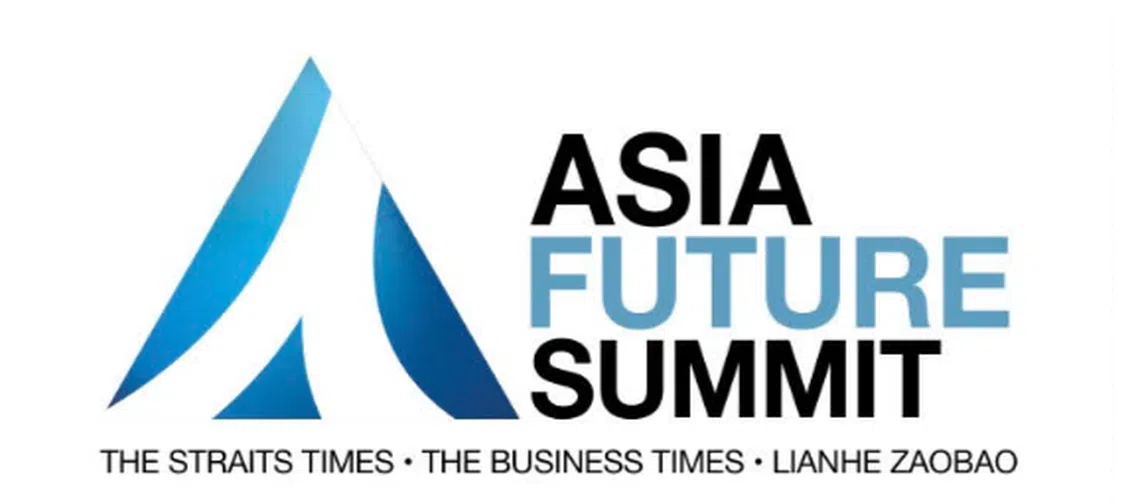Asia Future Summit 2023
Efforts to stabilise US-China ties will continue amid small window of opportunity: Panellists
Sign up now: Get ST's newsletters delivered to your inbox
Professor Jia Qingguo (left), professor and former dean of the School of International Studies at Peking University, and Mr Jon Huntsman, a former US ambassador to China, on a panel at the Asia Future Summit 2023. The session was moderated by Singapore’s Ambassador-at-Large Chan Heng Chee.
Follow topic:
SINGAPORE – Ongoing efforts to stabilise the United States-China relationship – as evident in the recent spate of high-level visits between both sides – will continue, albeit in a “hesitant” manner, said panellists in a discussion on Wednesday on major power relations.
But there is only a small window of opportunity for ties to stabilise further before the campaign rhetoric heats up ahead of the US presidential election on Nov 5, 2024, they added, during a session titled “Finding Balance amid Geopolitical Tensions”, which was held under the auspices of the Asia Future Summit 2023.
The two-day summit, an inaugural collaboration between The Straits Times, Lianhe Zaobao and The Business Times, is an invitation-only event taking place on Wednesday and Thursday at The Ritz-Carlton, Millenia Singapore.
The session was moderated by Singapore’s Ambassador-at-Large Chan Heng Chee.
Professor Jia Qingguo, professor and former dean of the School of International Studies at Peking University, said there were two developments in 2022 that had a direct impact on bilateral ties – the US midterm elections China’s 20th party congress
With the Republicans gaining control of the House of Representatives, it has become more difficult to pass legislation through Congress, and offer “new opportunities for him (President Joe Biden) to adjust US-China policy”, Prof Jia said.
Meanwhile, China’s 20th party congress saw the installation of new leaders who now have to deliver on economic growth, for which a stable international environment and stable China-US relations are necessary, he added.
“Current efforts to stabilise the relationship... are going to continue, are going to be hesitant, and probably slower than people like them to be. But then, the window of opportunity is going to be very short,” he said.
Prof Jia explained that in March 2024, campaigning for the next US presidential election will be in full swing. “If history can tell us anything, whenever you have a presidential election, the candidates will compete on getting tough on China,” he noted.
High-level meetings between both sides were said to have been suspended earlier in 2023, after an alleged Chinese spy balloon was found floating over the US.
In June, US Secretary of State Antony Blinken met Chinese President Xi Jinping in Beijing.
In September, both sides agreed to launch two new working groups
American and Chinese leaders are also reportedly paving the way for Mr Xi to visit the US.

SPH Media will holding a two-day conference on the future of Asia on Oct 4 and Oct 5.
The by-invitation Asia Future Summit 2023 will bring together 300 delegates, thought leaders, policymakers and diplomats, and feature more than 20 speakers. They include Prime Minister Lee Hsien Loong, former prime minister of Australia John Howard, former United States ambassador to Singapore Jon Huntsman and Mr Narayana Murthy, founder of Infosys.
The event at The Ritz-Carlton, Millenia Singapore will also discuss the world views of Mr Lee Kuan Yew, Singapore’s founding prime minister who died in 2015 and who would have turned 100 this year.
OCBC is the presenting sponsor of the event.
Another panellist, Mr Jon Huntsman, a former US ambassador to China, also highlighted that bilateral cooperation is often dependent on election cycles and major party meetings.
He said: “I was always mindful of the calendar. What’s coming up in three months, what’s coming up in six months, what do we have a year from now? And where do we have an opening where we can actually sit down free and clear of some political constraints, and talk about the fundamentals of the relationship and how we might make (progress)?”
Mr Huntsman, who also served as the US ambassador to Singapore and Russia, said China and the US need to better understand each other’s political systems and constraints. “By doing so, I think we can begin to identify areas of common ground,” he said.
Prof Jia noted that in general, the Chinese public tends to take American campaign promises at face value and the country needs to better understand the nature of American politics.
He said the US and China need to “take a more pragmatic approach in dealing with each other, especially to work together on concrete issues which clearly will have shared interest”.
Mr Huntsman said that in the past, there have been high expectations of what can be achieved bilaterally.
“In the past, we have been capable of big and ambitious things. In today’s world, I think we have to moderate that just a little bit. And we should be careful about the expectations that we build for one another.”
Mr Huntsman expressed concern that the US was approaching ties with Beijing in a “dogmatic, ideologically-based” manner.
“The more we lack a fundamental understanding of how the other side operates, the more we are likely to have misperceptions of one another, and bad calculations, so that translates into bad policy.”
He added that both countries will need to get out of a cycle of “point scoring”, referring to the tendency of taking tit-for-tat retaliatory actions in response to perceived grievances.
“There is the great balance sheet in the sky that both sides keep, and you never want to be outdone by the other without a proper response. This is a very difficult cycle... to get out of.”
OCBC is the presenting sponsor for the Asia Future Summit 2023. The event is also supported by Guocoland and Kingsford Group.


